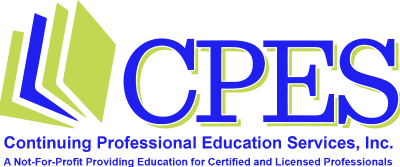Tuesday, June 3, 2025 | 9am-10am
(Login begins at 8:45m)
Description:
These hour-long programs are designed to update the industry on vital topics facing environmental regulations and protection in New Jersey and the surrounding area, as well as allow for an open dialogue with industry experts.
Speaker:
Lynne Mitchell, Assistant Director, Remediation Review Element, SRWMP, NJDEP
Understanding the Evolving Landscape of Site Remediation in New Jersey
A CPES Hot Topic Conversation with Lynn Mitchell
Continuing Professional Education Services, Inc. (CPES) hosted a timely and informative Hot Topic discussion in June with Lynn Mitchell, Assistant Director of the Remediation Review Element at the New Jersey Department of Environmental Protection (NJDEP). The conversation, moderated by Dr. George Berkowitz and Phil Brilliant, covered regulatory updates, permitting practices, and best practices for Licensed Site Remediation Professionals (LSRPs) navigating New Jersey’s evolving environmental landscape.
About Lynn Mitchell and the Remediation Review Element
Lynn Mitchell has been a part of the Site Remediation Program since 1988 and now oversees both the Bureau of Remedial Action Permitting (BRAP) and the Bureau of Inspection and Review (BIR). Her teams review all key documents submitted by LSRPs, providing technical oversight, issuing permits, and helping ensure that site remediation work complies with New Jersey’s current laws and standards.
Highlights from the Discussion
Technical Consultations: Early and Informed Communication Matters
Mitchell encouraged LSRPs to request technical consultations before submitting key documents like Remedial Action Reports (RARs) or permit applications. These meetings do not provide formal approvals but allow for discussion with reviewers to identify potential issues and clarify expectations in advance.
Preparedness is key. LSRPs should submit summaries or presentation materials ahead of time to ensure the right experts are present during the consultation. While consultations may come with a cost, they often prevent costly delays by avoiding multiple rounds of revision.

Enforcing the 60-Day Rule for Document Corrections
BRAP has implemented a strict 60-day response window for addressing deficiencies in submitted documents. If an LSRP fails to submit corrections or clarify required information within this timeframe, the application may be withdrawn or deemed incomplete.
This rule is designed to eliminate the practice of prolonged back-and-forth that once slowed down permit issuance for months or years. The focus is now on clarity, accountability, and keeping the permitting pipeline efficient.
Raising the Bar for Technical Writing
A recurring theme in the discussion was the quality of written reports. Mitchell and Berkowitz emphasized that LSRPs must clearly and thoroughly explain the site history, data, and rationale for decisions. A strong technical report should speak for itself and not rely on the reviewer to guess at missing context.
CPES offers a course titled Technical Writing for Environmental Professionals to help improve report clarity. The course is especially helpful for professionals who may have deep technical knowledge but struggle to convey it effectively in writing.
Adapting to Changing Standards: PFAS and the BICER Process
Mitchell explained how New Jersey’s biennial certification (BICER) process addresses changes in environmental standards, especially for emerging contaminants like PFAS. If a standard changes by more than an order of magnitude, LSRPs must re-evaluate whether existing remedies remain protective.
Guidance shared in a June 2024 NJDEP communication outlines how to make this determination and what to submit during the BICER phase. Mitchell clarified that permits submitted before August 3, 2024, may use older standards, but BICERs must include a review based on the updated criteria.
For those who missed the guidance, it can be found through the NJDEP’s Site Remediation Listserv Archives or DataMiner Tool.
Using Supplemental Certifications and Prioritized Applications
Mitchell encouraged professionals to use supplemental certification forms and prioritized permit pathways, especially for soil remediation projects. These tools are helping streamline the review process and reduce the overall timeline for permit issuance.
Internal Training and NJDEP Use of Technology
Mitchell discussed how NJDEP trains its staff to stay informed about technical standards and policy changes. Training methods include internal presentations, peer mentoring, external workshops, and required attendance at interdisciplinary roundtables and site visits.
While NJDEP is beginning to explore the use of automation and artificial intelligence (AI) to streamline internal workflows, Mitchell cautioned against over-reliance on AI by outside consultants. She emphasized that any report submitted under LSRP certification must be reviewed thoroughly for accuracy, clarity, and proper sourcing. LSRPs bear legal responsibility for the content of these reports.
Practical Advice for Professionals
- Respond promptly to NJDEP communications. Even a brief acknowledgment goes a long way in maintaining clear communication.
- Use the permit application checklist included in Notices of Incomplete to improve your submissions.
- Attend NJDEP’s SHRAB roundtable meetings, where current issues and process updates are regularly discussed. These sessions provide valuable insights and opportunities for direct engagement.
- If you need to preserve the use of pre-existing groundwater quality standards, ensure your remedial action work plans are uploaded by the August 3, 2024 deadline, and that they contain substantive documentation—not placeholders.
CPES remains committed to supporting the professional development of environmental and regulatory professionals in New Jersey. With industry-specific course offerings, expert instructors, and a mission rooted in quality education, CPES helps LSRPs, engineers, attorneys, and other professionals stay compliant, capable, and confident in their work.
